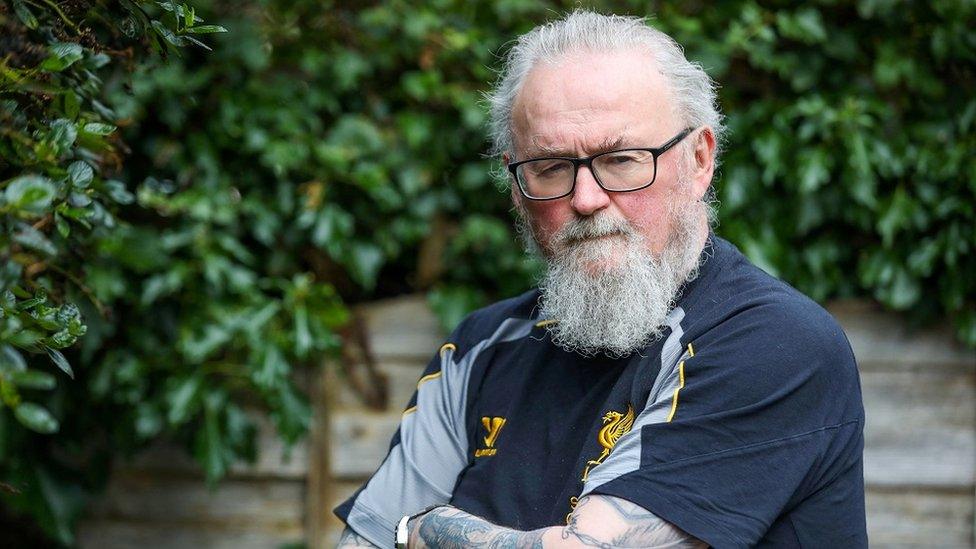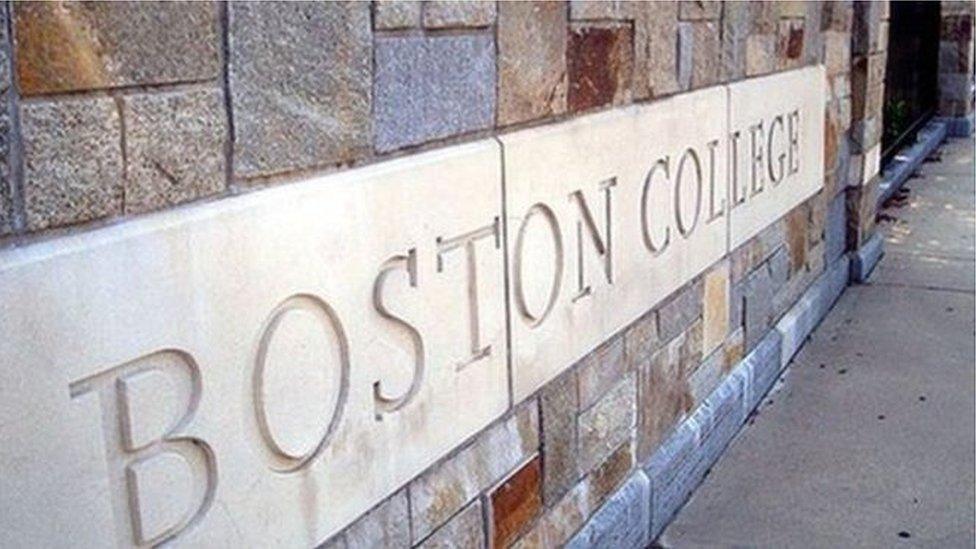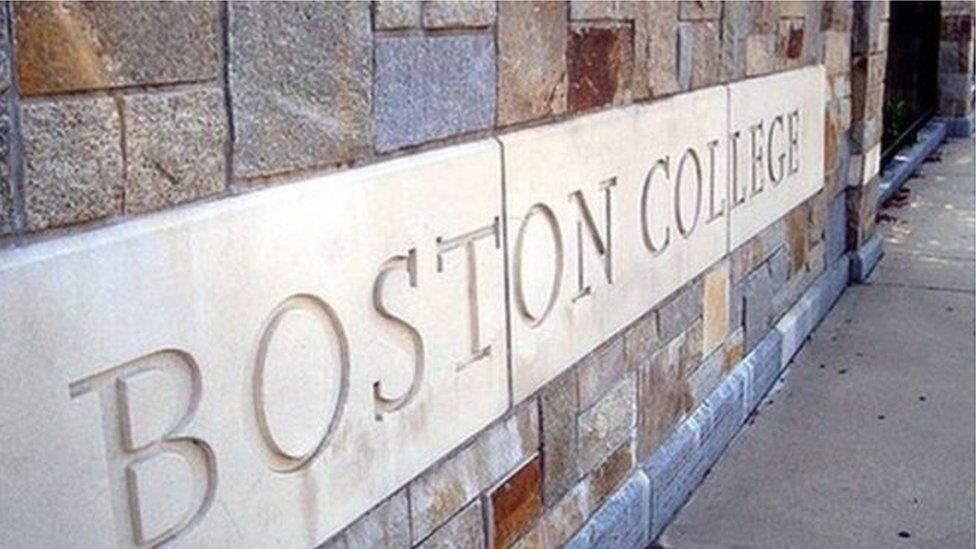Boston College: Police given date to access Anthony McIntyre's tapes
- Published

Anthony McIntyre left the IRA and has since become a writer and academic
The High Court has ordered that secret recordings of an ex-IRA man talking about what he did during the Troubles can be released to police next week.
Anthony McIntyre was among dozens of ex-paramilitaries who gave testimonies to a Boston College history project.
The tapes were supposed to stay secret while the interviewees were alive.
But judges ruled the tapes can be released on 26 April, five days before a deadline which will halt new police investigations into Troubles-era cases.
The controversial Troubles Legacy Act contains a legal cut-off point of 1 May for launching new investigations into crimes that were committed during 30 years of violence in Northern Ireland.
The handover date of 26 April gives Mr McIntyre's legal team a chance to lodge any further appeal against releasing the tapes.
The Police Service of Northern Ireland (PSNI) has been trying to access the Boston College tapes for several years in order to investigate their contents.
What are the Boston tapes?
The US-based project began in 2001 and its aim was to compile an oral history of the Troubles in Northern Ireland by recording the personal recollections of some of the people who were directly involved in the conflict.
Anthony McIntyre was one of the main researchers on the project and he also recorded his own memories of his activities while in the IRA.
The participants agreed to take part based on the understanding that their recorded testimonies would never be released during their lifetime.
However, those assurances were dealt a blow after police went to court and secured transcripts and tapes of interviews given by former IRA woman Dolours Price and loyalist Winston "Winkie" Rea.
But up to now, the PSNI has not yet been able to access the interviews Mr McIntyre gave to Boston College.
The protracted legal battle involved the UK government serving a subpoena on Boston College seeking copies of his testimonies.

The US institution faced legal action over the secret recordings
The move involved an International Letter of Request (ILOR) setting out alleged offences under investigation, including a bomb explosion at Rugby Avenue in Belfast in 1976, and membership of a proscribed organisation.
In 2018, Mr McIntyre began a legal challenge in a bid to ensure his recordings and transcripts remained confidential.
Although PSNI officers succeeded in bringing the tapes back to Northern Ireland, they have been kept in secure storage at the Royal Courts of Justice in Belfast for the past five years while the legal challenge continued.
Previous attempts to obtain an injunction to restrain police and the director of public prosecutions from making any further use of the interviews were dismissed.
On Tuesday, a panel of High Court judges backed the PSNI's case and ruled they had no legal power to retain the material.
A draft order was drawn up for the recordings to be delivered to a named chief inspector at 16:00 BST on Wednesday.
But Mr McIntyre's barrister sought a stay on the handover so that an appeal can be advanced.
Claiming police had shown no urgency to obtain the tapes, he added: "This material will (only) have any use to the police up to May 1."
A barrister acting for the PSNI chief constable, resisted suggestions that the handover should be put on hold for 14 days.
"If you extend to that date it takes us past the point where the Legacy Act takes effect in respect of criminal investigations," he submitted.
"It hollows out the scope for the PSNI to do anything."
Confirming the new date for police to take possession of the tapes, Lady Chief Justice Dame Siobhan Keegan said it would "facilitate any further steps that the appellant may wish to take".
Related topics
- Published29 February 2024

- Published17 October 2019
